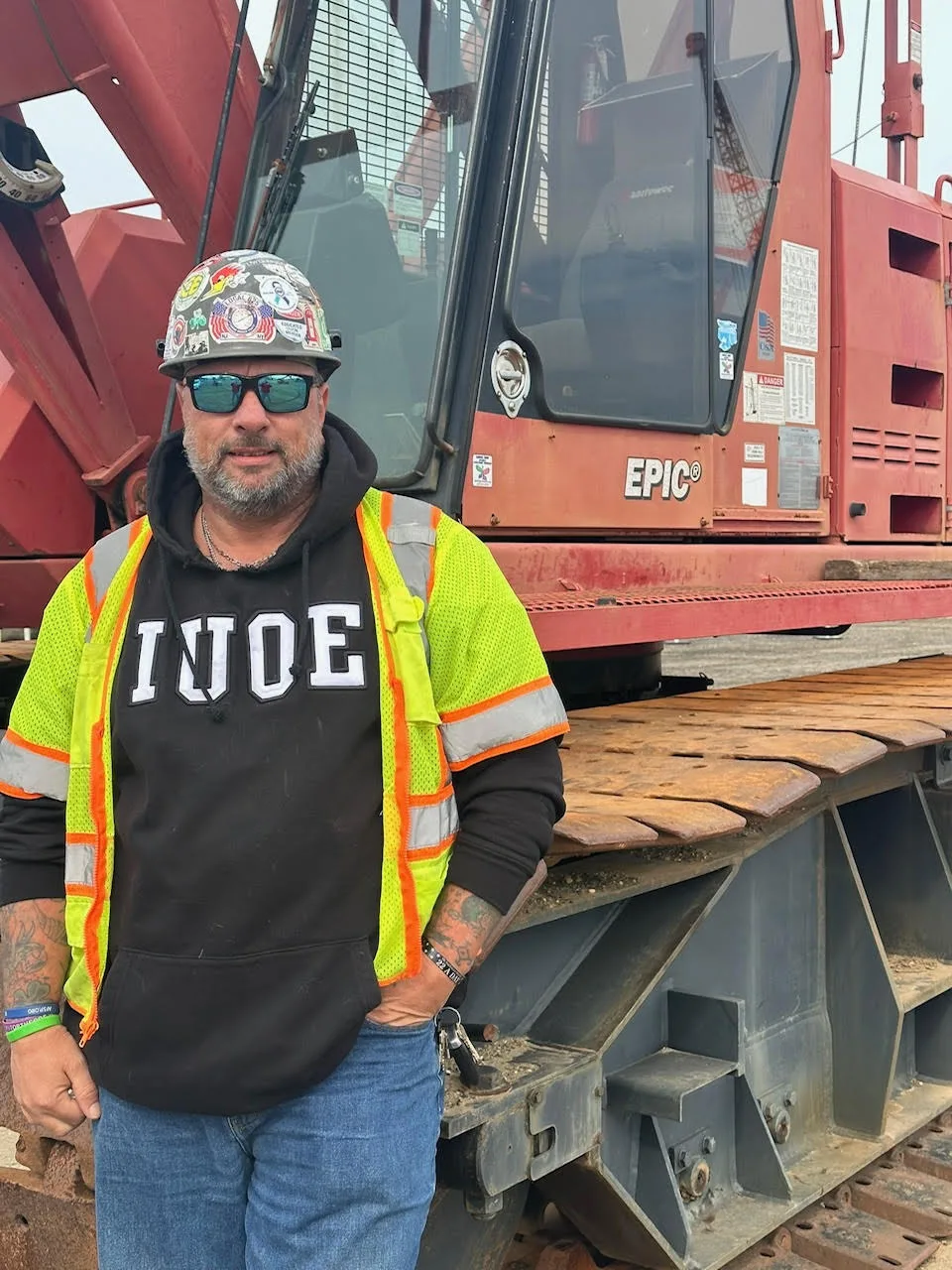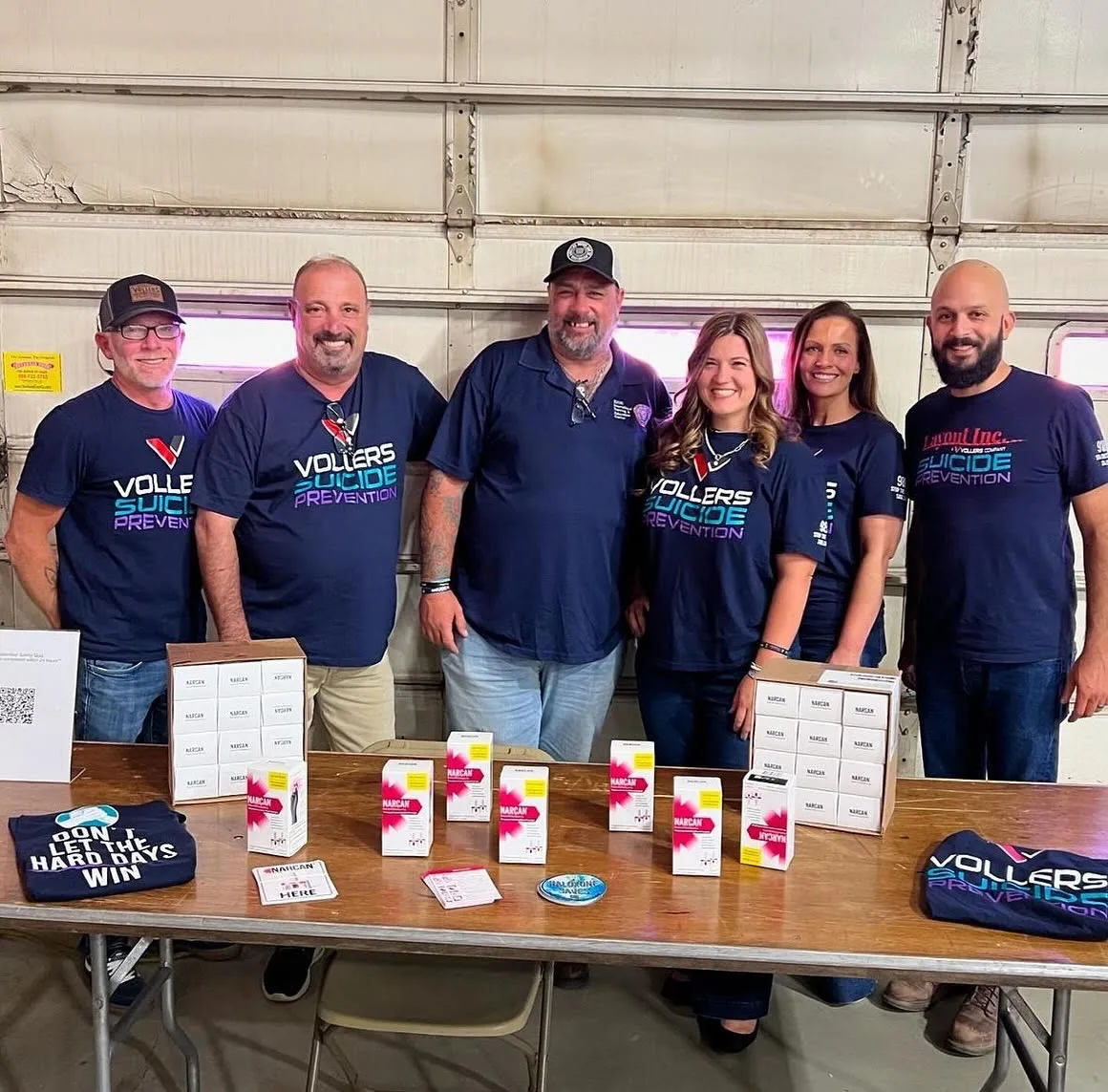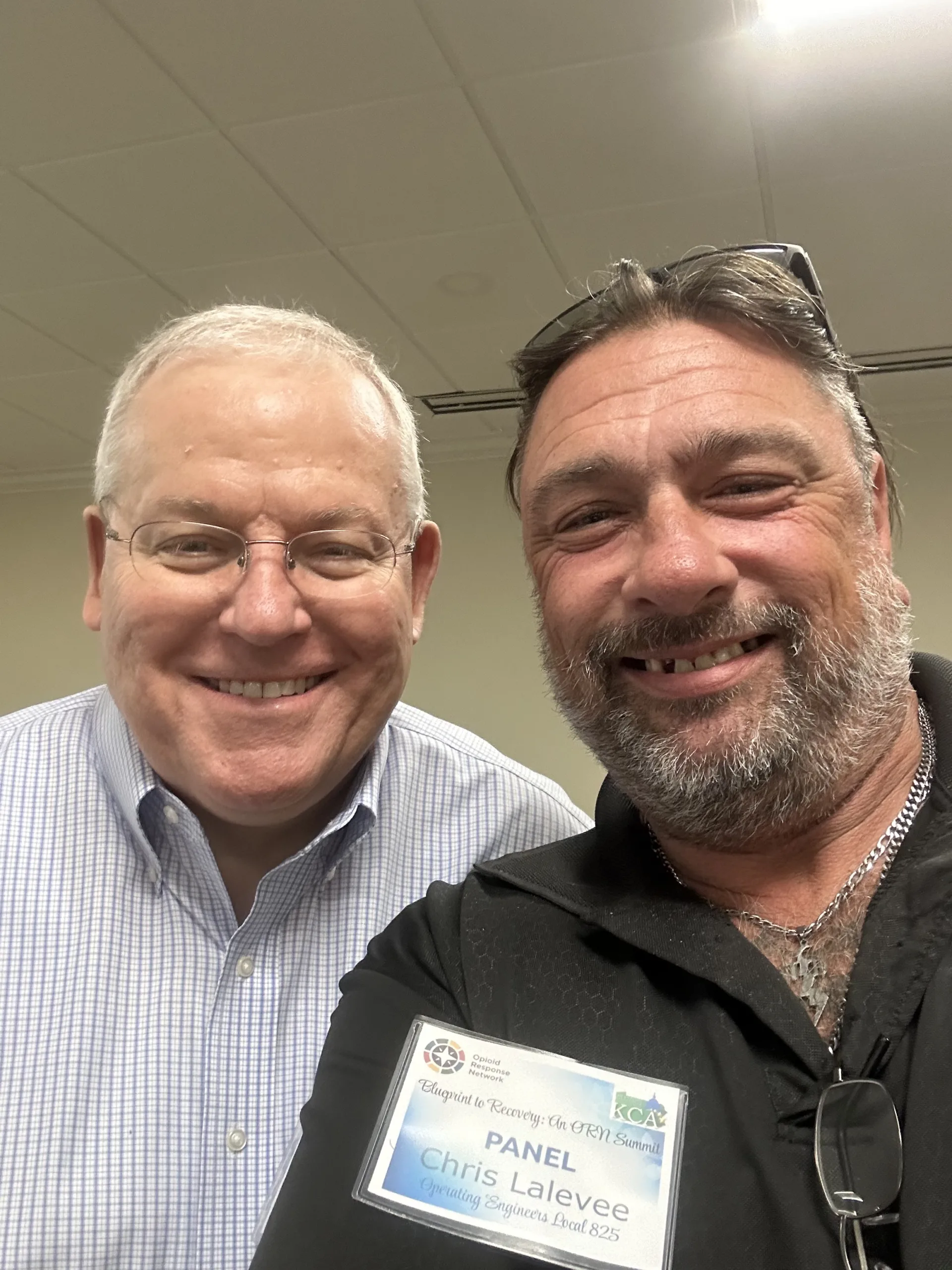For Chris Lalevee, being an Operating Engineer isn’t just a profession—it’s a way of life. A proud member of Local 825 since the age of 18, Chris has dedicated his career to not only building infrastructure, but also strengthening the well-being of his fellow union members.

A Career Built on Passion and Purpose
Coming from a family of Operating Engineers, Chris often jokes that he’s been part of the industry his entire life. “Did I choose it, or did it choose me?” he reflects. While school wasn’t his passion, his love for mechanics, working outdoors, and building things naturally led him down this path.
In 2019, he took on the role of Coordinator for Local 825’s MAP, an initiative formed in response to an IUOE resolution encouraging locals across North America to establish similar programs. With over 7,800 active members and approximately 1,000 retirees relying on Local 825, Chris understands the immense responsibility that comes with ensuring workers have access to the support they need.
Fighting for Recovery and Mental Health in the Trades
The construction industry has long been plagued by high rates of suicide, substance use, and mental health challenges. While progress has been made, Chris is candid about the ongoing fight. “Losing one is definitely too many,” he says. “There is a difference for sure, but it’s a long road to go. More people are open to listening, but implementing strategies and taking action can fall off without someone pushing and reminding them of the conversations that need to continue.”

Chris’ approach to breaking down stigma is rooted in authenticity. As someone open about his own struggles with mental health and recovery, he knows the power of vulnerability. “The effectiveness is in talking about myself and my struggles,” he explains. “It’s hard enough for someone to share their story. By sharing mine first, it sets a different stage and, I believe, helps them open up.”
His recovery journey has been marked by resilience and transformation:
- Recognizing the need for help and seeking it out.
- Sticking with recovery, even when it was frustrating and difficult.
- Coming out stronger than he ever imagined.
- Turning past chaos, confusion, and anger into a foundation for who he is today.
- Paying it forward by helping others find the support they need.
Commitment to Advocacy in the Construction Industry
Chris considers himself to be an advocate, ally, and partner with SAFE Project. He shares SAFE Project resources and refers people to access resources and tools on the SAFE Project website. Similarly, Chris has served on the planning committee for the Construction Suicide Prevention Week organization. In 2024, Chris co-presented a webinar with Cal Beyer, SAFE Project’s Sr. Director of SAFE Workplaces. And, like SAFE Project, Chris and Local 825 were founding members of the Alliance for Naloxone Safety in the Workplace. Chris and Cal have co-authored several articles to expand awareness, advocacy, and actions to promote mental health, addiction treatment and recovery, as well as suicide and overdose prevention. Chris is a frequent presenter at company, association, and industry events.

Why Peer Support Matters
Chris has played a key role in the IUOE’s peer support program, “It’s Time to Get Uncomfortable,” based at the international training center in Crosby, Texas. He believes that peer support is uniquely effective because of the deep sense of brotherhood and trust within the trades. We are construction. We are tribal. We don’t trust easily,” he says. “To have someone from your own tribe that cares, understands, and can be confidential is invaluable. That connection and trust have a huge influence on someone getting help and getting better.”
His commitment to confidentiality is something that his peers deeply respect. “I see no reason to ‘talk’ about someone or their problems with anyone. It’s hard enough to find someone trustworthy,” he says. “My father always said, ‘It costs nothing to be nice.’”
A Recovery Ally with a No-Nonsense Approach
Chris’s superpower as a recovery ally? His no-judgment, no-nonsense attitude. I’m an open book. I make myself available. I’m accessible. I don’t judge. I accept people for who they are,” he says. “I’m outspoken, a little assertive, and straightforward—but I’d help my biggest enemy if they needed it.”
As he continues to advocate for mental health, recovery, and overdose prevention in the trades, Chris remains steadfast in his mission: to ensure that no one slips through the cracks and that every Operating Engineer has the support they need to build not just strong structures, but strong lives.
Share Your Story
This epidemic has given us one common experience: we have all become experts in our own way. At S.A.F.E. Project, we believe that we strengthen one another by sharing our stories. Whether you are in recovery, lost a loved one, or are making a difference in your community, you can help others on this journey. We’d like to hear from you.


